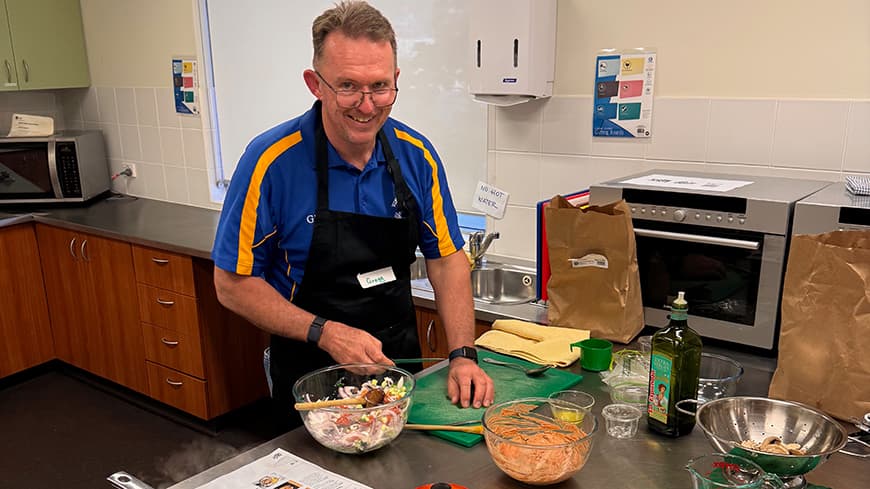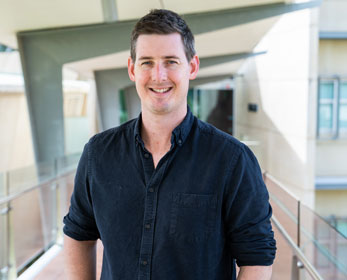Researchers from Edith Cowan University (ECU) have developed a meal box targeted specifically for patients living with Huntington's disease and those with acquired brain injuries.
"Weight loss and malnutrition from unhealthy eating due to cognitive, movement, behavioural, and social factors are common in people with neurological conditions such as Huntington’s disease, acquired brain injury, Parkinson's disease, and Alzheimer's disease," ECU senior researcher Dr Travis Cruickshank said.
"These issues contribute to poorer physical, cognitive, and emotional functioning, and reduced independence and quality of life.
The inability to cook is also a significant predictor of nursing home placement," he added.
Partnering with WA-based meal box provider You Plate It, researchers translated insights from workshops with lived experience advocates, health experts and scientific experts to co-design Brain Bites specifically to meet the dietary and disability needs of the community.
Compared with other meal box offerings on the market, Brain Bites requires less preparation, offers simplistic recipes and shorter cook times. Packaging of the ingredients within the Brain Bites meal box has also been considered to make it more accessible to users.
Dietitian Dr Jo Rees said the recipes contained within the Brain Bites meal boxes were based on the Mediterranean and MIND diets, offering optimal nutrition.
"The Mediterranean and MIND diets are currently clinically recommended, but hard to follow as at the moment, patients are just presented with a piece of paper offering guidelines on what foods they should eat, with no instructions on how.
"The Brain Bites initiative will simplify this process for patients living with Huntington's disease or with acquired brain injuries, bringing the ingredients right to their doorstep and providing them with easy-to-follow recipes," Dr Rees said.
What's next?
Trials to evaluate the feasibility of the co-designed meal box, and to assess the effects of the meal box on the nutritional intake of individuals with Huntington’s disease and acquired brain injuries have now been completed, with great success
"The project is the first to evaluate a tailored meal box solution designed to address the specific dietary challenges of people with neurological conditions. If proven feasible, Brain Bites could establish a model for future trials.
"By helping individuals continue cooking and preparing meals independently for longer, this intervention could delay the need for facilitated care and nursing home placement, thereby potentially altering the clinical course of the disease," Dr Cruickshank said.
 Kings Park Warriors CEO Gregg Oughton.
Kings Park Warriors CEO Gregg Oughton.
Participants hungry for more
Feedback from the Brain Bites trials has been overwhelmingly positive. Participants shared how they felt their input had been heard, and that the meal boxes made cooking enjoyable and accessible again, with straightforward instructions, less prep time and minimal chopping or grating. Many commented on how great the food tasted and how the boxes helped restore a sense of self-worth and independence.
Future iterations of the meal box are currently being customised to suit individuals at different stages of these conditions, based on the latest evidence-based dietary guidelines. Furthermore, the project team are currently working on a meal box specifically tailored for people living with Parkinson's disease and Alzheimer's disease and stroke and have intentions to translate this work to cardiovascular, metabolic and cancerous diseases.
Huntington's Disease impacts 8 people out of every 100,000, while it is estimated that 1 in 45 Australians live with acquired brain injury with activity limitations or participation restrictions due to disability.
Over 1 in 3 people are affected by neurological conditions, and it is considered to be the leading cause of illness and disability world-wide.
The Brain Bites initiative has been supported by a number of organisations and individuals, including Huntington's Australia, the State Head Injury Unit, Kings Park Warriors, Connectivity representative and lived experience advisor Shenane Hogg, Neurosciences Unit North Metropolitan Area Mental Health representative Melanie Clark, and Season 16 Masterchef contestant Lachlan Whittle.
Huntington's Australia CEO Lenni Duffield said the initiative the organisation was very excited to be part of the Brain Bites initiative.
"There is a real need for people with neurological conditions to have good food and easy to follow recipes to ensure that they are getting the adequate nutrition. It's also important for people impacted by Huntington's disease to still be able to do daily activities such as cooking a meal for their family that we take for granted. We are hopeful that this will be able to become a national project where all of the Huntington’s community are able to benefit from Brain Bites to try and minimise weight loss and malnutrition," she said.

 The Brain Bites initiative has been supported by a number of organisations and individuals.
The Brain Bites initiative has been supported by a number of organisations and individuals.



